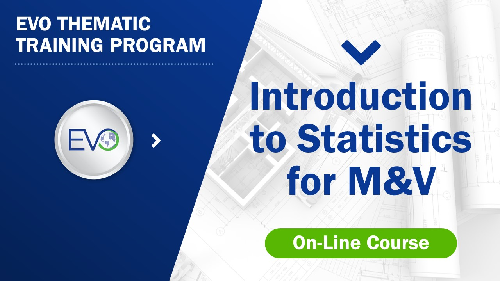In This Issue
Impacts of COVID-19 on Measurement and Verification (M&V) of Energy Savings: Market Perspectives
March 2021 - M&V Focus Issue # 8
In this issue of M&V Focus, Krystian Muñoz and Álvaro Soto of the Chilean Energy Sustainability Agency (Agencia de Sostenibilidad Energética) present the structure and results of the Certification of Energy Project Savings (Certificación de Ahorros de Proyectos Energéticos (CAPE)). This mechanism is based on the IPMVP, and the objective is to establish a standard mechanism that allows and facilitates the reporting of projects’ measurement and verification results.
The pandemic caused by COVID-19 has affected everyone, creating various critical issues and difficulties worldwide, and energy reduction projects are no exception. In the context of measurement and verification (M&V) efforts, COVID has caused widespread non-routine events! Given the complexities faced by the industry, EVO’s Focus Group on COVID-19 has developed several resources intended to guide on risks and options for projects and programs, including two articles in this issue of M&V Focus. The first article provides perspectives from the market. It gives a larger context of COVID’s impacts on energy markets and M&V. It illustrates the diversity of impacts by sector and how difficult it may be to differentiate COVD impacts on energy use from those due to weather variations, highlighting the importance of site-specific analysis. In the second article, discussions are included for utility-funded programs and their evaluation efforts, for energy savings performance contracts (ESPCs), as well as for energy management efforts and focus on meter-based M&V.
Finally, our last article describes Energy@Work’s experience in using EVO’s Non-Routine Adjustment Method #6, to quantify the electricity savings resulting from energy efficiency measures at Berkely Castle, a mid-tier historic commercial office building in Toronto, and distinguish them from the kWh reductions due to lower occupancy during the pandemic from March 1st to May 31st, 2020.
Certificación de Ahorros de Proyectos Energéticos (CAPE): Un mecanismo nacional basado en el IPMVP para certificar los ahorros de proyectos energéticos

![]() Por Krystian Muñoz* y Álvaro Soto**
Por Krystian Muñoz* y Álvaro Soto**
La Certificación de Ahorros de Proyectos Energéticos (CAPE) tiene como objetivo establecer un mecanismo estándar que permita el reporte de los resultados de la medición y verificación de proyectos en el ámbito energético, facilitando a los usuarios finales de energía certifiquen los resultados de los proyectos energéticos implementados en sus instalaciones.
Impacts of COVID-19 on Measurement and Verification (M&V) of Energy Savings: Market Perspectives

![]() By Lia Webster*, with support from EVO’s Focus Group on COVID-19**
By Lia Webster*, with support from EVO’s Focus Group on COVID-19**
The pandemic caused by COVID-19 has affected everyone, creating a variety of critical issues and difficulties worldwide, and energy reduction projects are no exception. The health crisis has disrupted economies and initially resulted in dramatic and rapid decreases in global energy use, with impacts ongoing. Similarly, facility energy use patterns have shifted due to changes in site-level operations (e.g., operating hours and number of occupants) resulting in fundamental issues for some measurement and verification (M&V) efforts. The primary M&V-related concern due to these unexpected changes is substantially over- or under- estimating savings from the targeted energy efficiency measures (EEMs).
Impacts of Covid-19 on Measurement and Verification (M&V) of Energy Savings: Considerations for Projects & Programs

![]() By Lia Webster* with support from EVO’s Focus Group on COVID-19**
By Lia Webster* with support from EVO’s Focus Group on COVID-19**
COVID has caused changes such as increased use of remote offices and at-home schooling, reduced in-person shopping and a corresponding increase in delivery service, curbed use of public transportation, among others. The shifts in end-use energy consumption patterns are noticeable at both individual sites and on a larger scale, creating complications for measurement and verification (M&V) efforts in both energy efficiency projects and programs, especially for those using meter-based M&V methods (i.e., IPMVP Option C).
Energy@Work's Commercial Office Experience Using EVO’s Non-Routine Adjustment (NRA) Method #6 to Quantify Electricity Savings During a Pandemic

![]() By Amir Kamandlooie*, Scott Rouse** and Edward Newton***
By Amir Kamandlooie*, Scott Rouse** and Edward Newton***
This article describes Energy@Work’s experience in using EVO’s “Non-Routine Adjustment” (NRA) Method #6. Berkeley Castle is a mid-tier, historic, commercial office building in Toronto, Ontario. Our objective was to quantify the electricity savings resulting from energy efficiency measures and distinguish them from the kWh reductions due to lower occupancy during the pandemic from March 1st to May 31st, 2020.




